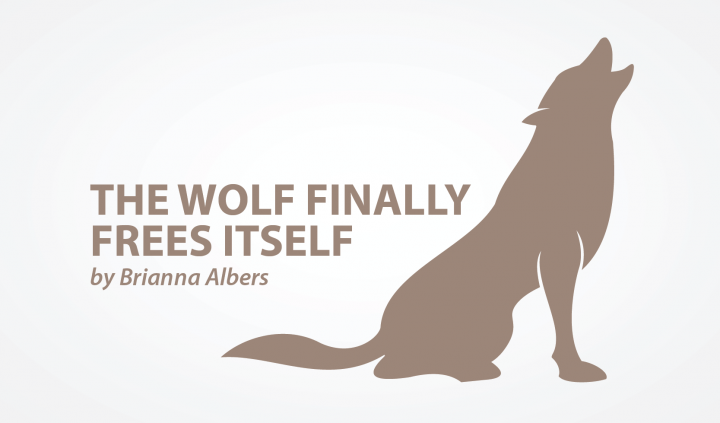Facing My Fear of Surgery Through British TV
Written by |

I was a bit of an Anglophile in high school. I was obsessed with anything produced by the BBC — “Doctor Who,” “Sherlock,” “Merlin,” even the 2006 retelling of “Robin Hood.” It didn’t help that my best friend lived in Scotland and often spoke in British endearments. I was thoroughly Minnesotan, but that didn’t stop me from dreaming of life abroad, or from adopting as many Britishisms as possible.
My tastes have changed over the years. But life is cyclical, which is to say my mom and I have been watching “Call the Midwife,” a long-running BBC show spanning the late 1950s and early ’60s. I’m not one for historical fiction, but it seems that “Call the Midwife” is an exception. I’m obsessed. The characters are lovable, the plotlines are engaging, and the less-than-desirable aspects of the era — racism, homophobia, ableism couched in infantilization — are not glossed over.
“Call the Midwife” is a show of goodness — of birth and death, of life and grief, of doing the next right thing. “Call the Midwife” embodies one of my all-time favorite quotes: “Do not be daunted by the enormity of the world’s grief. Do justly, now. Love mercy, now. Walk humbly, now. You are not obligated to complete the work, but neither are you free to abandon it.” I finish every episode with an incredible sense of hope.
My favorite character is a nun, Sister Monica Joan. She loves literature, astrology, and sweets, and is extremely intelligent, despite her struggles with memory loss and confusion due to old age. She worked as a midwife for many years, and now lives at Nonnatus House in a kind of quasi-retirement, reading, gardening, and advocating for unrestricted TV access. (Notably, we share a dislike of Sigmund Freud.)
In series seven, Sister Monica Joan’s eyesight deteriorates greatly. Her fellow nuns encourage her to undergo cataract surgery, despite her distrust of modern medicine. We watch her prepare for the operation, ill at ease and desperate to escape the hospital. She’s afraid of dying. Specifically, she’s afraid of dying under anesthesia. The sister is wheeled into the operating room with tears in her eyes, sobbing openly.
I understand Sister Monica Joan’s fear of surgery all too well. I had my first operation at 6 years old, when metal rods were placed in my back to prevent further scoliosis. I knew going in that I might not survive — spinal fusions are inherently risky, and the anesthesiologist was concerned that my SMA would affect my ability to wake up after the operation. I was so young, and so scared. I remember telling my parents I loved them through broken sobs.
I survived. But the experience was traumatic. Even writing this column is difficult — I can’t think about surgery, let alone linger on the subject, without panicking. Sometimes, while lying in bed at night, I pretend I’m being put to sleep. Like a guided meditation, I count backward from 10. I imagine the swampy darkness consuming me. I tell myself not to worry. That I’ll wake up, as I always have, and hopefully always will.
In the before times (B.C., or before coronavirus), I had plans to get a suprapubic catheter (SPC). I’m a part of several Facebook groups for disabled folks with uteruses, and many members recommend SPCs. I’m always fiddling with my fluid intake, in the hopes of addressing my chronic tension headaches through hydration, so SPCs are of particular interest to me. The procedure is simple — minimal risk, twilight anesthesia. I even went as far as scheduling the operation.
Then COVID-19 happened and the world changed.
I’m not planning on rescheduling the procedure any time soon. But I did discuss the logistics of getting an SPC during a pandemic with a doctor I trust. What kind of precautions are hospitals taking right now? Could I hire a home health nurse to change the SPC once a month, minimizing my risk of infection? We barely touched on anesthesia, but I still noticed my instinctual trauma response — lightheaded, short of breath, unbearably antsy.
I didn’t realize until I got home that Sister Monica Joan’s story reflects my own. She didn’t need cataract surgery, and I don’t need an SPC. We’re both terrified of anesthesia, of losing ourselves to that murky darkness. We’ve both survived terrible things — waking up in post-op, limbs numb and thoughts sluggish, only to cry with relief.
We were alive. Somehow, miraculously, we weren’t dead yet.
I won’t be getting an SPC until COVID-19 has seen itself out. But I’m already grappling with my trauma, preparing myself for whatever comes. I can only hope that, like Sister Monica Joan, I will wake up with tears in my eyes, grateful to be alive.
***
Note: SMA News Today is strictly a news and information website about the disease. It does not provide medical advice, diagnosis, or treatment. This content is not intended to be a substitute for professional medical advice, diagnosis, or treatment. Always seek the advice of your physician or other qualified health provider with any questions you may have regarding a medical condition. Never disregard professional medical advice or delay in seeking it because of something you have read on this website. The opinions expressed in this column are not those of SMA News Today, or its parent company, Bionews, and are intended to spark discussion about issues pertaining to spinal muscular atrophy.




Boghos L. Artinian MD
The Surgical Deities
I am hesitant
to let any deity
mess with my empire of cells
(my body),
my strong government
(my brain),
and an army
of lymphocytes,
mast cells, and macrophages
in my innards.
I, their god,
must first agree
to let another god
perform a 'divine intervention'
in my empire,
and on my behalf.
To do that
I must sign a consent form.
Of course I can refuse,
which might mean
the annihilation of my empire,
and I with it;
or perhaps
its deliverance
from the mismanagement
of other gods!
Boghos L. Artinian MD
This poem expresses the fear of surgery.
Brianna Albers
This is beautiful! Thank you so much for sharing. 💜